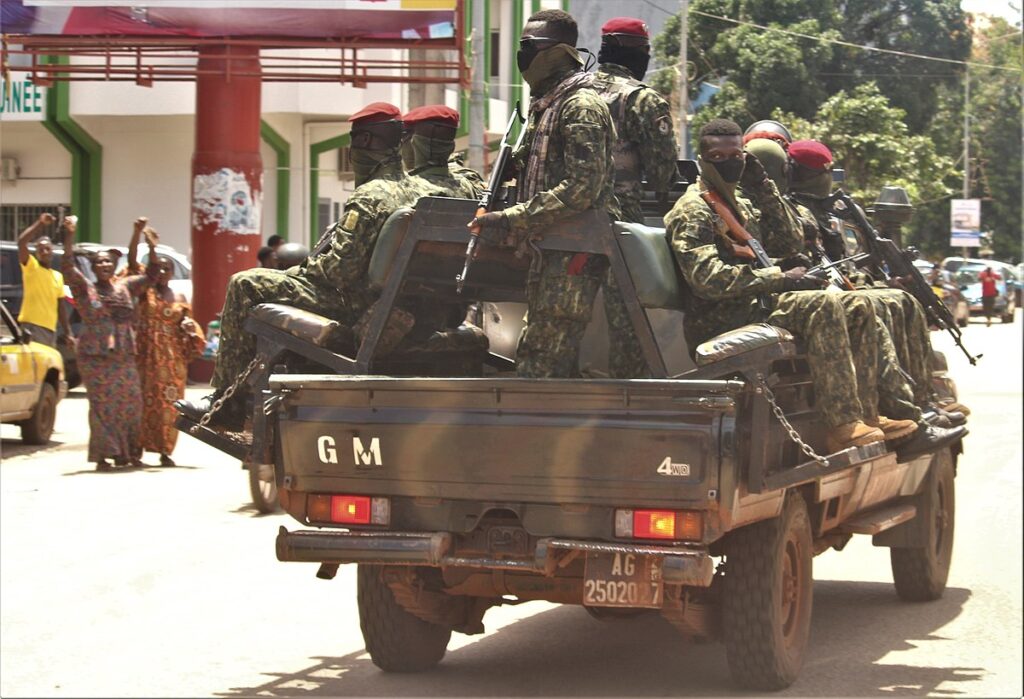As the popular adage says, a general without loyal troops is just a well-dressed man.
In the view of political sociologist Larry Diamond (The Spirit of Democracy, 2008), without horizontal accountability mechanisms, institutions become showcases that exist more to appear legal than to operate effectively. So, in post-colonial contexts, the militarization of politics did not abolish clientelism. In other words, uniforms and the rhetoric of discipline and order did not erase the vices of the patrimonial systems that African countries inherited from colonialism. They merely painted them with the aesthetics of military authority.
The logic of clientelism – loyalty to the leader, ethnic group or faction – replaces competence and institutional commitment. It then begins to operate in new forms in which generals have become uniformed “bosses”, whose function is to distribute positions, concessions and impunity in exchange for political support and personal protection. Troops are used not only as instruments of national defence, but also as political capital that can be mobilized – faithful not to the Constitution, but to those who control the chain of rewards.
This phenomenon reveals a militarization of politics that offers a new grammar of power. However, it maintains the same vocabulary of private alliances, selective exclusions and behind-the-scenes pacts. Instead of solid republican institutions, what flourishes are clientelist networks rooted in informal loyalties. And these networks must now be protected by tanks and army rifles. The uniform, in this case, becomes a mere symbol of institutional neutrality.
The “Red Buttons” of Power
To use a metaphor for the sake of better understanding, if a power structure were an orchestra the general would be the conductor – an imposing figure, respected, elevated on a rostrum. But those who play the instruments are would be the captains and junior officers. Without them there would be no melody – and they know it. It is they who decide whether there will be music – or just noise. If the system were a plane, the general would be the pilot. But the captains would be the flight mechanics who keep the plane in the air. And they know that, if they had the support of the passengers and crew, they could take over the plane in an emergency and fly a different route.
What seems to be a paradox – a captain overthrowing a general – is merely a reflection of a system in which real power does not follow titles. It follows the reality of influence and control. Where institutions are fragile and loyalties are liquid, the one who can take the pulse of the organisation and who is in contact with the lower ranks can write a new score even if he wears only a captain’s uniform.
To illustrate this we refer to the 2022 case of Burkina Faso where Captain Ibrahim Traoré used his position in the artillery regiment of Kaya to take control of the capital, Ouagadougou. This event demonstrates what many experts say – 80% of successful coups involved at least one special forces unit or presidential guard. Another example is Guinea in 2021 when Colonel Mamady Doumbouya overthrew President Alpha Condé without resistance from the generals who were involved in corruption schemes. The French political scientist Jean-François Bayart (The State in Africa, 2009) describes this phenomenon as ‘militarized rent-seeking’.
Chained elephants
We can say that many generals in fragile regimes suffer from “chained elephant syndrome”. Although they are imposing and carry the symbolic weight of power, they have been tamed by years of corruption, politicking and silent compromises with civilian elites. They are tied to other generals and politicians by secret favours, blackmail and dirty pacts. The loyalty between them is based on fear of exposure and the consequent loss of what they have accumulated.
Faced with hollow military power, many political leaders appoint their children and relatives to high-ranking positions backed by surveillance and a parallel command more powerful than the institutional channels. Thus President Teodoro Obiang Nguema Mbasogo of Equatorial Guinea appointed his son as vice-president, giving him control over strategic sectors such as security and oil. Paul Biya in Cameroon has his son as his adviser and potential successor, while in Uganda President Yoweri Museveni handed over command of the special forces and the Army to his son Muhoozi Kainerugaba.
In patrimonial and personalistic regimes, family loyalty is seen as being secure. The children and relatives control the keys of the coffers, weapons and communication, forming an internal wall against betrayals and conspiracies.
To be continued …..
By Neque Alcino António João Francisco
